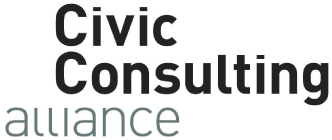Chicago Nursing Pilot
Case Study: 2009
Civic Consulting Alliance, the Mayor's Office, and Metropolitan Chicago Healthcare Council (MCHC) garnered support from Chicago-area hospitals to ensure that more available and higher-quality instruction was provided to nurses to resolve the citywide shortage.
The effort stemmed from Chicago LEADS, a program focused on aligning job training with needed jobs in the City. In-depth analysis revealed that the most significant observed shortages existed in the healthcare, hospitality, transportation and technology industries. Based on research by Bain & Company, it was recognized that as a result of a market failure and misaligned incentives, the nursing shortage was a critical workforce development issue in the healthcare industry.
The Challenge
The Chicago area nursing shortage was the result of a limited number of qualified instructors willing to teach in the local training programs.
Because nurses made more money working as nurses than they did teaching, the high-performing nurses were not willing to make the transition into the classroom. The lack of qualified teachers ultimately meant that training programs were unwilling to add additional seats to their programs. While Chicago hospitals recognized the problem and understood the need for more qualified nurses, a single hospital working alone was not incentivized to contribute nurses to teach.
The Solution
MCHC and Civic Consulting worked together to build support from local healthcare CEOs to ensure more qualified nurses for teaching and more clinical rotations.
Initial support came from three CEOs: Dr. Larry Goodman from Rush, Ray McCaskey from Blue Cross Blue Shield of Illinois, and Jim Skogsdergh from Advocate Health. They contacted other CEOs and recruited other hospitals to help solve the nursing shortage. By getting buy-in from all the hospitals, the incentive problem of the nursing shortage was eliminated and all hospitals were willing to work together to provide instructional support for the training programs and clinical rotations allowing for the addition of seats.
The Impact
The Chicago LEADS nursing shortage resolution is an example of how private-public partnerships can resolve critical issues. While all the hospitals in the area recognized the impact of the nursing shortage, no single hospital was willing to address it alone.
By creating a City government supported initiative, outside stakeholders were able to build support within the healthcare industry to resolve the problem together. As a result of the private-public partnership effort, the Chicago area nursing training programs are now able to provide 3500 more instructional seats for nurses over the next five years drastically improving the state of the nursing shortage in Chicago.

